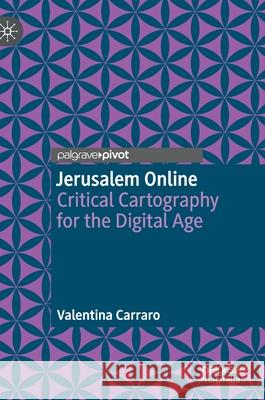Jerusalem Online: Critical Cartography for the Digital Age » książka
topmenu
Jerusalem Online: Critical Cartography for the Digital Age
ISBN-13: 9789811633133 / Angielski / Twarda / 2021 / 124 str.
Jerusalem Online: Critical Cartography for the Digital Age
ISBN-13: 9789811633133 / Angielski / Twarda / 2021 / 124 str.
cena 242,07
(netto: 230,54 VAT: 5%)
Najniższa cena z 30 dni: 231,29
(netto: 230,54 VAT: 5%)
Najniższa cena z 30 dni: 231,29
Termin realizacji zamówienia:
ok. 16-18 dni roboczych.
ok. 16-18 dni roboczych.
Darmowa dostawa!
Kategorie BISAC:
Wydawca:
Palgrave MacMillan
Seria wydawnicza:
Język:
Angielski
ISBN-13:
9789811633133
Rok wydania:
2021
Wydanie:
2021
Numer serii:
000806579
Ilość stron:
124
Waga:
0.32 kg
Wymiary:
21.01 x 14.81 x 0.97
Oprawa:
Twarda
Wolumenów:
01
Dodatkowe informacje:
Wydanie ilustrowane











